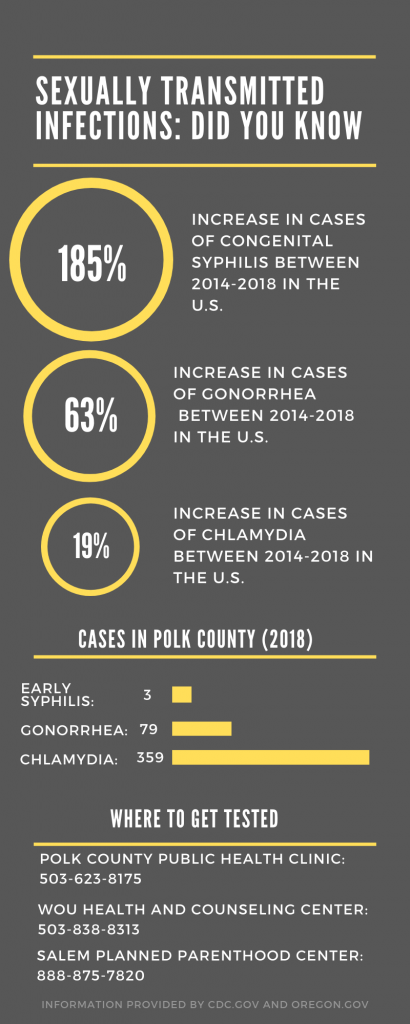Caity Healy | Managing Editor

Think back to when you were in middle school or high school, when one of your teachers, sat the class down and gave you the sex ed talk. Of course, this is assuming your school actually decided to give you said talk — my school district, Battle Ground School District just outside of Vancouver, WA, just decided to cut the requirement for sex ed. Which is absolutely ridiculous, but an argument for another day and not the point I’m wanting to get at here. So, back to what I was saying: think back to that sex ed class you (hopefully) had.
When I think of my sexual education, I remember it pretty clearly — there were visuals, so they showed us what a condom looks like and how to use it; there was the explanation on how to have safe sex (although they did tell us the only way to really be safe is to not have it at all, which is a cute idea but you’re talking to a bunch of people who just hit puberty so… good luck with that); and, what I remember most was how there was a huge display on how having unsafe sex will spread sexually transmitted infections and diseases, and they made it sound like it would ruin our lives.
Let’s look at the facts; according to Western’s Health Center’s 2018 survey, “41.8% of students did not use any method of protection the last time they had intercourse.” On top of this, also in 2018, “34.1% used the “Withdrawal” method of contraception the last time they had intercourse,” or in other words, the “pull-out method.”
When this many people are practicing unsafe sex, it’s inevitable that someone will contract an STI. In fact, according to CDC.gov, in 2017 a total of 1,708,569 chlamydial infections were reported to the CDC in 50 states and in the District of Columbia. Similarly, CDC.gov reported 555,608 cases of gonorrhea in the U.S. in 2017, as well. So the point is, these infections are happening. Regardless of whether a sex ed class teaches safe sex, STIs and STDs are still being spread. So wouldn’t it have been nice if your sex ed class taught you what to do if you actually contracted one of these diseases, rather than try to scare you away from the thought of them?
STIs are heavily stigmatized in our culture. When sex ed courses, or “the talk” with your parents, tries to scare you away from them, or make you feel like you’re a bad person for contracting them, it further enhances that stigma surrounding STIs. When someone does contract one, rather than wanting to take care of it, this stigma will lead to them feeling ashamed or embarrassed to tell their partner(s), a friend or their health care provider.
I can think of several films or TV shows where the parent or a physician told a kid something along the lines of, “This is what your genitals will look like if you contract an STI.” It then pans to the child in absolute horror and disgust. But we never hear them say, “If this does happen to you, here are the steps you can take to make sure you get healthy again.” That last part is important if we actually want people to be healthy, and not just want to scare them away from sex and shame them for contracting an incredibly common infection.
At the end of the day, that’s what an STI is: an infection. People get infections every day, and when they do, they go see their doctor and get it cleared up. STIs should be treated like any other infection. If you get one, it can be taken care of, and that’s the end of it. Based on the fact that it’s an incredibly common occurance, it’s really not as big of a deal as your sex ed might have made it sound; most clear up from prescribed medication from a doctor. That said, it can become a bigger deal if it is not taken care of or if it’s being spread haphazardly.
If someone reaches out to you and tells you they have an STI, treat them the same as if someone said, “I think this cut on my hand is infected.” Don’t be disgusted; they’re probably scared and need someone to confide in — be happy they chose you. Then reassure them that they will be okay and show them ways they can get medical attention. Ultimately, we all have to work together to minimize this stigma surrounding STIs.
If you or someone you know believes they might have an STI or STD, they can contact Western’s Health and Counseling Center at (503) 838-8313. It’s also a good idea to get checked for STIs and STDs regularly if you are sexually active or were recently, as sometimes they don’t present with symptoms.
Contact the author at chealy16@wou.edu
Infographic by Caity Healy

